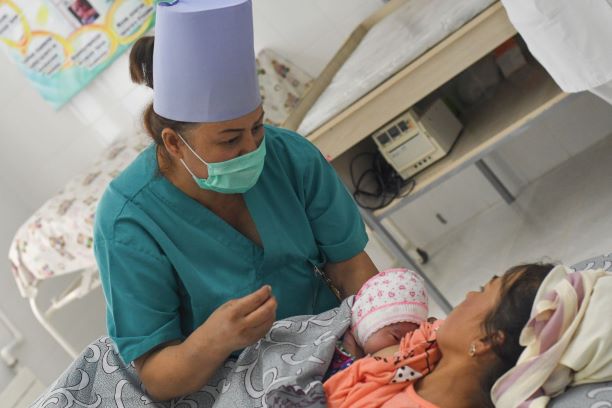Primary health care around the world: delivering health services to people where they need it – World Health Organization (WHO)
As COVID-19 continues to highlight inequities within and across countries, the world’s commitment to health as a human right will largely determine the sustainability of economies and societies we build and rebuild, during the pandemic and far into the future.
Accelerating progress towards universal health coverage (UHC) relies on greater investments in primary health care (PHC) to bring services closer to people. The UHC Partnership, one of WHO’s largest initiatives for international cooperation for UHC and PHC, is providing vital and timely support to help countries to take advantage of the opportunity to emerge stronger from the pandemic.
The Partnership works in 115 countries with funding from the European Union, the Grand Duchy of Luxembourg, Irish Aid, the French Ministry for Europe and Foreign Affairs, the Government of Japan – Ministry of Health, Labour and Welfare, the United Kingdom – Foreign, Commonwealth & Development Office, Belgium, Canada and Germany.
Many of these countries are demonstrating that PHC best serves communities and empowers them to choose healthier lifestyles, prevent diseases or access early detection, treatment and recovery. People-centred PHC, with equity in service delivery, ultimately paves the way for a fairer, healthier world for all.
Country experiences and lessons from COVID-19 are documented in the UHC Partnership’s special series of stories from the field on the COVID-19 response.
WHO Eastern Mediterranean Region: Sudan is empowering people to voice their health needs by implementing community dialogues where they can take part in finding solutions and hold their local health authorities accountable.

WHO Western Pacific Region: Mongolia is bringing health services to remote communities by using mobile health technologies to reach nomadic populations, migrants and unregistered people.
WHO Africa Region: Zimbabwe is maintaining essential health services by using real-time data to assess the needs of the population and ensure responsive and timely actions.

WHO Americas Region: Caribbean countries are improving the availability and quality of care for critical care patients by training and empowering their health workforce.
WHO South-East Asia Region: India is bringing health services closer to communities by strengthening its network of primary health care centres.

WHO European Region: Uzbekistan is maintaining strong momentum to reform its health system and reduce out-of-pocket expenses for its population with a state health insurance fund that covers primary health care services.

Download the new compilation of stories from the field to learn how countries are reshaping their health systems to respond to COVID-19 and protect their populations from all threats to health.
Read more about WHO’s response to COVID-19 across the world.
Related
UHC Partnership
Universal Health Coverage
Primary Health Care
International Health Regulations (2005)
Noncommunicable diseases
Health workforce
Global Action Plan for Healthy Lives and Well-being for All
World Health Day 2021







